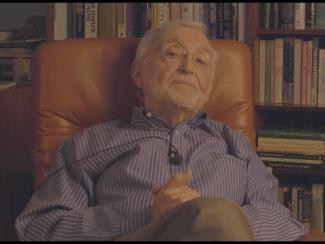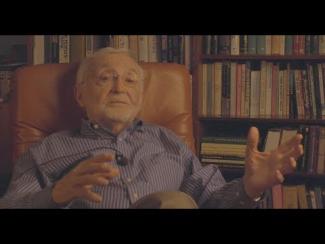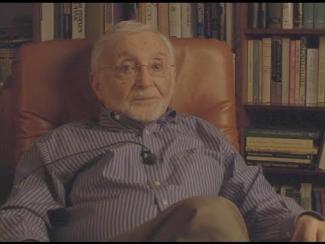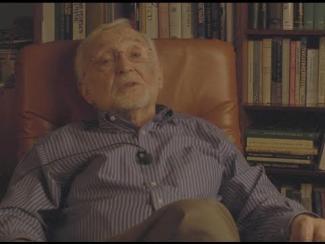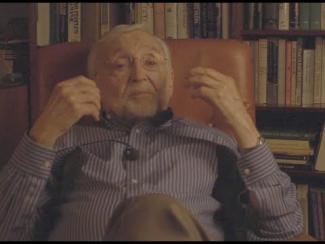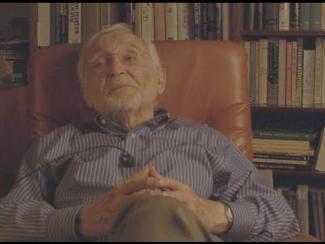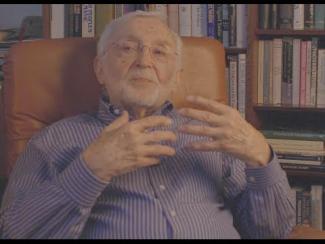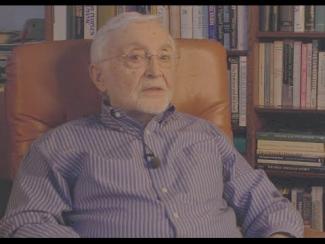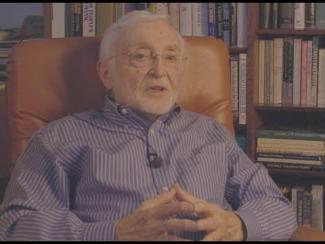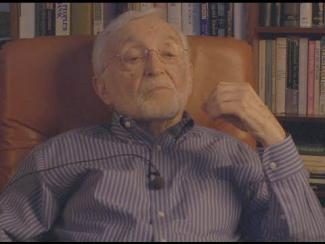The Yiddish Book Center's
Wexler Oral History Project
A growing collection of in-depth interviews with people of all ages and backgrounds, whose stories about the legacy and changing nature of Yiddish language and culture offer a rich and complex chronicle of Jewish identity.
Gunther Rice's Oral History
Gunther Rice, child survivor of the Holocaust, was interviewed by Christa Whitney on December 13, 2012 in Glencoe, Illinois. Gunther was born in 1924 as the ninth child of Polish Jews. Gunther describes the sad, quiet atmosphere of his home, which he attributes to political as well as personal events. Gunther was raised Orthodox in a Polish-Jewish neighborhood in Hamburg, Germany. He fondly remembers singing Pesach songs a capella with his brothers and the shul where they prayed. His mother was determined to get all of her many children out of Germany; several emigrated to America and Palestine. When he was fourteen, Gunther's parents and two remaining siblings were taken away by uniformed German officers. Miraculously, he was reunited with his family at the collection area. After loading onto a passenger train and disembarking at the "no man's land" between Germany and Poland, they were able to escape to a small border village where they were safe for a while. Sponsored by the Children's Refugee Society, Gunther boarded the last ship leaving Poland before it was invaded and was taken to England via the Kindertransport. He never saw his parents again. Gunther was fostered by a Jewish family in Cardiff, Wales, and after several years went to London on his own. He was still corresponding with his parents at that time and has translated some of the letters they sent him. Gunther's parents and sister did not survive the Holocaust and although he lived through difficult experiences, he thinks that use of the word "survivor" should be limited to people who were in the camps. Gunther, having always identified as a Jew, is proud of his Jewishness. Whether they choose to be Orthodox or not, he hopes that each of his grandchildren will continue to value empathy for fellow humans and learning—two hallmarks of Jewishness for him. Although Gunther is not fluent in Yiddish, he can converse and believes that this ability has strengthened his Jewish identity. He tells stories about speaking Yiddish with Jews in unlikely places such as Halifax, Nova Scotia. He mentions an uncle, Natan Fruchter, who escaped and settled in Buenos Aires and became a writer; he learned something about him from the Yiddish Book Center which had some of his books in their collection. Gunther is in touch with his family in Israel and has visited many times. He graduated college, got his doctorate in Chicago, and practiced as a clinical psychologist for over forty years. He worked with his late wife who was a clinical social worker. He looks back and feels that he has had a good life and is immensely proud of his children and grandchildren. He hopes that they will each contribute in their own ways to the continuance of Jewish culture and will always fight antisemitism when they encounter it.
This interview was conducted in English.
Gunther Rice was born in Hamburg, Germany in 1924. Gunther died in 2020.

